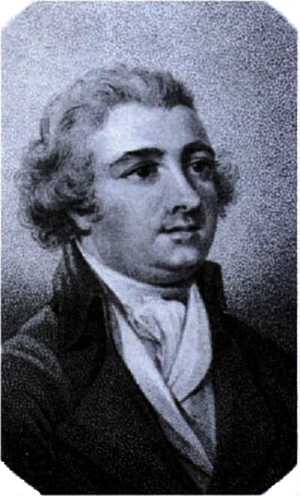Charles Murray (Scottish actor) facts for kids
Charles Murray (born in 1754, died in 1821) was a talented actor and writer from Scotland. He became well-known on stage during his time.
Contents
Early Life of Charles Murray
Charles Murray was born in 1754 in Cheshunt, Hertfordshire, England. His father was Sir John Murray of Broughton. Charles traveled to France when he was younger. He also studied pharmacy and surgery in London. For a while, he worked as a surgeon's assistant on ships. These ships sailed around the Mediterranean Sea.
Starting His Acting Career
Charles Murray first started acting for fun in Liverpool. A theatre manager named Younger helped him get a start. He then joined Tate Wilkinson's acting group in York. Charles made his first professional stage appearance in York. He used the stage name Raymur. His first role was Carlos in a play called Love Makes a Man. This play was written by Colley Cibber. In 1776, he had a disagreement in Wakefield. This incident caused him to lose his acting job.
Acting in Norwich and Bath
After spending more time at sea, Murray returned to acting. He used his real name this time. He performed with a group led by Griffiths in Norwich. On October 8, 1785, he made his first appearance in Bath, England. He played the character Sir Giles Overreach. This was in the play A New Way to pay Old Debts. Charles Murray stayed in Bath until 1796. He played many different kinds of roles there.
His wife, Mrs. Murray, sometimes acted with him. On July 1, 1793, his young daughter, Harriet Murray, made her first stage appearance. She played Prince Arthur in a play. This performance was a special event for her grandparents. Harriet later played Titania in another show. On May 19, 1796, Mrs. Murray had her final benefit performance in Bath. Harriet played Fine Lady in David Garrick's play Lethe. Charles Murray gave a farewell speech that night.
Performing at Covent Garden
Charles Murray arrived at the Covent Garden theatre in London with a good reputation. His first performance in London was on September 30. He played Shylock in one play. He also played Bagatelle in The Poor Soldier. People soon realized he was best at playing supporting roles.
For his own special performance on May 12, 1798, he played Polixenes. This was in the play The Winter's Tale. His daughter, Harriet Murray, also made her London debut that night. She played Perdita in the same play. On October 11, 1798, he was the first actor to play Baron Wildenhaim. This was in Elizabeth Inchbald's play Lovers' Vows. In 1802, he played the main character in Alfonso, King of Castile. This was a tragedy written by Matthew Lewis. Charles Murray's last performance at Covent Garden was on July 17, 1817. He played Brabantio in Othello. Other famous actors like Charles Mayne Young and Junius Brutus Booth were also in that show.
Later Life and Passing
By February 1817, a theatre magazine called The Theatrical Inquisitor mentioned Murray was an older actor. They also noted he was having health problems. He was at risk of paralysis. To be close to his children, Harriet Siddons and William Henry Murray, he moved to Edinburgh, Scotland. Charles Murray passed away there on November 8, 1821.
 | Bessie Coleman |
 | Spann Watson |
 | Jill E. Brown |
 | Sherman W. White |


